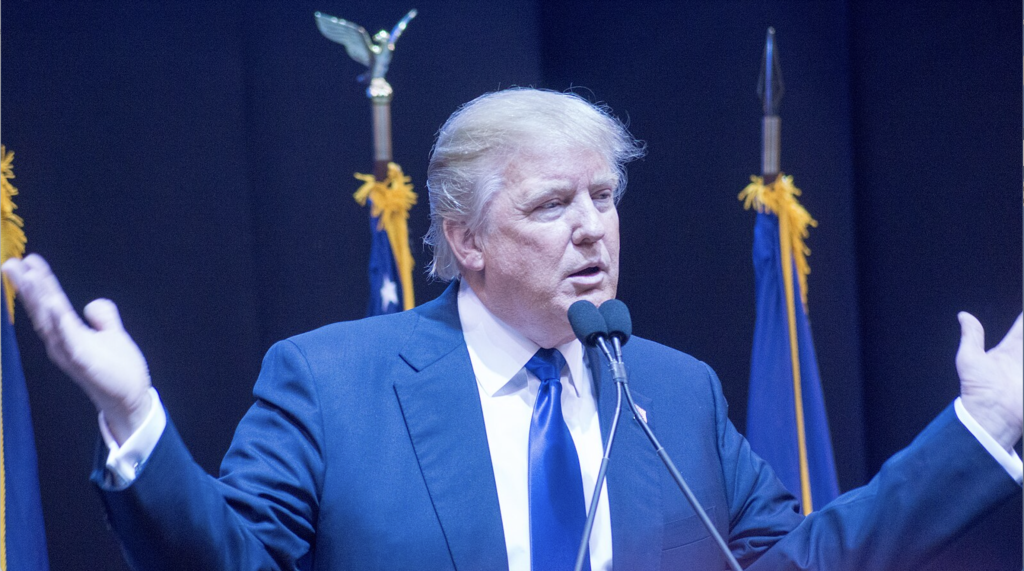Can Trump Leverage Foreign Policy Successes to Balance a Pressured Domestic Agenda

By: Ghassan Rubeiz / Arab America Contributing Writer
According to the New York Times, Elon Musk, on behalf of President-elect Donald Trump, met last week with Iran’s representative to the United Nations. Although Iran later denied the meeting took place, the news might be taken as an early sign of the incoming administration’s shift towards diplomacy.
Trump was very aggressive toward Iran and Palestine in his first term. He withdrew the United States from the nuclear deal with Iran and offered Israel much of what it had desired in its search for legitimacy and security. He offered Israel recognition of its annexation of the Syrian Golan Heights, recognized a unified Jerusalem as the capital of Israel, ended diplomatic contacts with the Palestinians in East Jerusalem, cut funding for UNRWA (the UN agency that supports Palestinian refugees) and ended a dialogue with Palestinian representatives in the US. As hurtful as these actions were, none of them involved military intervention. (No wonder, Arabs perceived Biden’s intermittent expressions of sympathy for Palestinian suffering as breathtaking hypocrisy, given the United States’ complicity in the genocide in Gaza.)
To be fair, we do not know how Trump, had he been in charge, might have reacted to Israel’s massacres in Gaza. But Trump’s current attitude toward Iran seems less aggressive than during his first term. He has refused to bring two neoconservative interventionists, Michael Pompeo and John Bolton, back into his government. Trump is also less hawkish on Palestine than his present nominee for secretary of state, Marco Rubio. During Trump’s first term, both Pompeo and Bolton advocated for attacking Iran militarily. To his credit, Trump seems to have refused to accept his past advisors’ arguments for reliance on physical force.
In a related Washington Post article by Abigail Hauslohner, Trita Parsi, a prominent Iranian-American analyst, argues that unless Trump agrees with Iran, a regional war is imminent. It does appear that Trump would prefer to make a deal with the Islamic Republic now that it has been weakened on the battlefield. Trump’s apparent preference for transactional diplomacy also seems to match the approaches of the vice president, J.D. Vance; defense secretary nominee Pete Hegseth; and incoming director of national intelligence, Tulsi Gabbard.
Today, Trump faces a set of sobering international developments: Iran’s desperation for peace and Israel’s thirst for territory; an emergent alliance between Russia, China, and Iran; near-global dissatisfaction with US foreign policy toward Palestine, Lebanon, and Yemen; and a spiraling US national debt, in which military spending seems out of control. Trump’s apparent policy shift in foreign affairs might help him cope with an overwhelming domestic agenda, including the budget deficit; a massive immigration crisis; an explosive debate over abortion, cataclysmic climate change; and widespread disagreement over energy and tax policies.
Among the “low-hanging fruit” in foreign policy is a peace agreement being negotiated between Israel and Lebanon’s Hezbollah. When war between Lebanon and Israel stops, we will be witnessing a small step forward in rebuilding Lebanon and adding to Israel’s national security. Trump’s possible shift in foreign policy is not necessarily a deliberate step toward justice; it is rather a pragmatic response to a shifting political landscape.
Ghassan Rubeiz is the former Middle East Secretary of the World Council of Churches. Earlier, he taught psychology and social work in his country of birth, Lebanon, and later in the United States, where he currently lives. For the past twenty years, he has contributed to political commentary and delivered occasional public talks on subjects related to peace, justice, and interfaith. You can reach him at rubeizg@gmail.com
The views and opinions expressed in this article are those of the author and do not necessarily reflect the position of Arab America. The reproduction of this article is permissible with proper credit to Arab America and the author.
Check out our Blog here!








